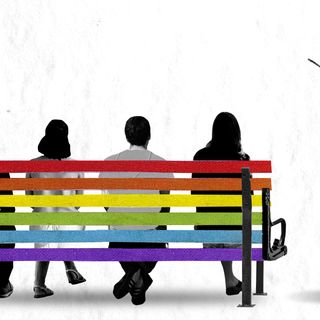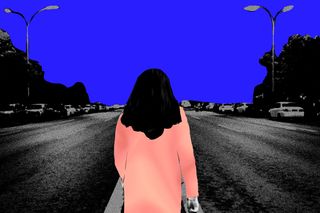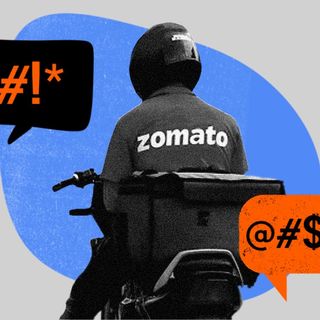
Nothing Wrong With Wandering Around Streets Late at Night in a City Like Mumbai, Court Rules
“Even if it [is] assumed that 01:30 a.m. is too late, then also w[a]ndering on the street is not an offence when there is no night curfew.”

“In [a] city like Mumbai, 1:30 a.m. is not too late. Anyone can stand on, [or] near the road,” ruled a court in Mumbai last week.
The observation comes in the context of an individual being arrested for merely being on the roads — with the act of “wandering” quickly linked to one of notoriety.
Nadeem Patel, Metropolitan Magistrate at the 40th Court in Girgaon, Mumbai, delivered the order while hearing the matter of a 29-year-old man who was arrested from a street in South Mumbai. He was booked for “sitting under suspicious circumstances between sunrise and sunset” while “hiding” his face with a handkerchief — without having a “proper explanation” for either act, according to the patrolling officer.
The court noted that there’s nothing unusual about people covering their faces given that the pandemic is yet to recede. Upon being questioned by the police, the man revealed his real name too. According to the court, that indicates the accused didn’t have any mala fide intentions behind being out in the streets, and contrary to what the police suggested, he wasn’t trying to hide his identity.
Related on The Swaddle:
Working Nights Liberated Me, Even If It Took A Toll On My Health
“[O]n the basis of the evidence of the prosecution it is very difficult to hold that the accused was hiding his identity to commit an offense… [the] prosecution failed to prove [the] guilt of the accused beyond [any] reasonable doubt,” the court held.
In a busy city like Mumbai, not only do lawyers and investment bankers, among others, often work beyond midnight, but people also party late. Many bars are open till 1:30 a.m. — the hour at which the accused was discovered on the street. Some party spots, in fact, are open all night too. Basically, there is nothing unusual about being out in public late at night in the country’s financial capital. As the judge noted, “Even if it [is] assumed that 1:30 a.m. is too late, then also w[a]ndering on the street is not an offense when there is no night curfew.”
It begs the question: why did the police deem it necessary to arrest someone who wasn’t committing an offence, but was simply out on the streets at what some would call a “late hour”? Perhaps, the fact that the accused hailed from Uttar Pradesh triggered certain cultural stereotypes about people from the region. Or, it may have been yet another instance of abusive behavior of the Indian police force towards the country’s citizenry, which the Kerala High Court had criticized last year — attributing it to the police’s notion of superiority over the public.
“Instead of policing through public consent and participation, the police use abuse and threats as a primary crime investigation and law enforcement tactic,” a 2009 report on the Indian police by Human Rights Watch (HRW) had stated. It had also gone on to argue that the police system itself fails to provide “encouragement to [officers to] develop professional police tactics.”
Related on The Swaddle:
Police Have an Obligation to Act With Empathy: Kerala HC
The present judgment’s value, though, doesn’t just lie in drawing a line between the police performing its duties and the citizens exercising their civil rights. It also serves as a reminder that a setting sun doesn’t eclipse people’s freedom — something that women’s rights groups, too, have been trying to highlight through midnight marches, in India and abroad.
This instance is not unique. Several anecdotes point to anxiety around people being out on the streets too late. This applies more acutely to people of gender and sexual minorities, who are often questioned about their intent. Time and again, one also hears of women walking alone in parks or streets being told to “go back home” by patrolling officers.
The incident, and many like this, betray a state’s anxiety around people who loiter and linger without a purpose in public. It is a passive but visible challenge to power dynamics. As Maya Sorabjee wrote in 2016: “Loitering is a non-productive performance. For the most part, no transactions are made, no useful goals are met — timepass, locals call it. But in a city tacked together by codified spaces of consumption and propelled by the ceaseless churning of surplus capital, loitering, in its invitation to slack off, is powerful.”
Perhaps, by being out late without an obvious purpose, the 29-year-old threatened the perception of the night belonging only to the rich and the elite — driving around in luxury cars, often to enjoy the kind of solitude that only the night can present in an otherwise bustling city like Mumbai. Ice-cream sellers, gas station personnel, and chauffeurs, of course, are exempt from suspicion at such hours when they’re evidently around to serve the aforementioned rich and elite. But for one to neither be driving in a luxury car, nor be serving those that do, may have been a direct challenge to the prevailing status quo. Naturally, then, he was produced before a court — for daring to exist in public at night, and in doing just that, disturbing the tranquility that the more privileged want to relish.
Devrupa Rakshit is an Associate Editor at The Swaddle. She is a lawyer by education, a poet by accident, a painter by shaukh, and autistic by birth. You can find her on Instagram @devruparakshit.
Related


Alleged Assault on Zomato Delivery Agent Is a Reminder of How Everyday Casteism Thrives in India
